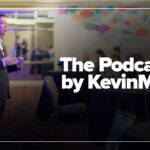Practicing medicine today is not what most of us envisioned when we chose it as a profession. We still love science. We still love health. We still love helping patients and being healers.
But the practice of medicine has changed—and continues to evolve at an unprecedented pace. Navigating this shifting landscape requires a new mindset—one rooted in adaptability, self-awareness, and resilience. The way we were trained to practice medicine twenty or thirty years ago no longer serves us.
The old models emphasized:
- Self-sacrifice and martyrdom—but burnout is now an epidemic.
- Service at all costs—which comes at the steep price of mental and physical well-being.
- Medicine as “a calling”—this often justifies unfair working conditions and unrealistic expectations.
- Avoiding discussions of compensation—we are told advocating for fair pay undermines our commitment to patient care.
- Over-responsibility and toxic independence—which lead to unsustainable workloads and a culture of silent suffering.
These outdated beliefs are not designed for today’s health care system. They are no longer sustainable. The pressures of electronic health records, administrative burdens, and corporate medicine demand a new approach.
We have the power to reshape our approach to medicine—to practice in a way that is both fulfilling and sustainable.
When you understand how you were trained to think—and how those thought patterns shape your lived experience—you gain the ability to make intentional changes:
- Recognize harmful conditioning and question outdated mental models.
- Set boundaries to protect your well-being without compromising patient care.
- Cultivate a growth mindset to navigate change effectively.
- Manage energy wisely instead of running on empty.
- Advocate for systemic change rather than passively accepting frustration.
The future of medicine isn’t just about enduring the system—it’s about transforming it. By shifting our mindset, we can move from feeling powerless to stepping into leadership, whether at the bedside, in administration, or within advocacy circles.
Practicing medicine in 2025 requires navigating change with strategic intention. Unfortunately, these skills were not taught in medical school. That does not mean we cannot learn them now.
Mindset coaching and reclaiming your purpose
This is where mindset coaching comes in. It is an evidence-based approach to rewiring old thought patterns and developing new strategies for professional fulfillment.
Whether virtually or in person, this type of support helps physicians reclaim their energy, purpose, passion, and impact.
If you are ready to approach medicine differently, now is the time. The health care system may be broken, but you do not have to break with it.
Jessie Mahoney is a board-certified pediatrician, certified coach, mindfulness and yoga teacher, and the founder of Pause & Presence Coaching & Retreats. After nearly two decades as a physician leader at the Permanente Medical Group/Kaiser, she stepped outside the traditional medical model to reimagine what sustainable well-being in health care could look like. She can also be reached on Facebook and Instagram.
Dr. Mahoney’s work challenges the culture of overwork and self-sacrifice in medicine. She helps physicians and leaders cultivate clarity, intention, and balance—leveraging mindfulness, coaching, yoga, and lifestyle medicine to create deep and lasting change. Her CME retreats offer a transformative space for healing, self-discovery, and renewal.
As co-host of the podcast, Healing Medicine, she brings self-compassion and presence into the conversation around modern medical practice. A sought-after speaker and consultant, she partners with organizations to build more human-centered, sustainable, and inspired medical cultures.
Dr. Mahoney is a graduate of Dartmouth College and the University of California, San Francisco, School of Medicine.





















![AI censorship threatens the lifeline of caregiver support [PODCAST]](https://kevinmd.com/wp-content/uploads/Design-2-190x100.jpg)
